The film Made in Hong Kong allows glimpses on a Hong Kong shortly before the 1997 handover to China. But rather than focusing on the expected hysteria Luc Schaedler’s documentary debut works towards complexity by allowing six diverse residents to talk about their relationship to the colonial city. Their life stories beautifully mix with the images of the author. Made in Hong Kong is a very personal portrait of a city in transition and we learn about Hong Kong’s ambiguities and its political and social problems, as well as the uncertainties regarding the time after 1997.
Related Movies
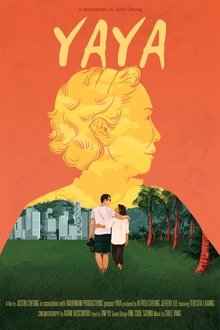
YAYA (2018)
YAYA is a story about a filmmaker who explores the complex relationship between his family and the domestic worker who spent decades away from her family in the Philippines to raise his. This documentary is a tribute to all the domestic workers in Hong Kong, who has served as the backbone of Hong Kong's economy by unleashing a substantial female workforce into the economy and taken care of so many lives with love and care. You are all heroes in the hearts of the Hong Kong people. - Justin Cheung, the director

Revolution of Our Times (2021)
Throughout Hong Kong’s history, Hongkongers have fought for freedom and democracy but have yet to succeed. In 2019, a controversial extradition bill was introduced that would allow Hongkongers to be tried in mainland China. This decision spurred massive protests, riots, and resistance against heavy-handed Chinese rule over the City-State. Award-winning director Kiwi Chow documents the events to tell the story of the movement, with both a macro view of its historical context and footage and interviews from protestors on the front lines.

Follow Me (1969)
Documentary about two boys and a girl who travel to surfing spots around the world.

Rebellion (2019)
As the 'one country two systems' policy in Hong Kong has slowly eroded, resentment among the territory's citizens has steadily grown. What began as a series of spontaneous protests against an extradition law in March 2019 has now escalated in to a full-blown popular uprising that shows no signs of abating. ABC Four Corners reports from the frontline of the action, capturing extraordinary footage of the growing tension and violence.

Be Water (2020)
In 1971, after being rejected by Hollywood, Bruce Lee returned to his parents’ homeland of Hong Kong to complete four iconic films. Charting his struggles between two worlds, this portrait explores questions of identity and representation through the use of rare archival footage, interviews with loved ones and Bruce’s own writings.

Memories to Choke On, Drinks to Wash Them Down (2019)
This anthology film, whose Chinese title begins with a romantic name for human excrement, premiered internationally at Rotterdam and won Best Screenplay from the Hong Kong Film Critics Society. A variety of Hong Kong people wrestle with nostalgia when facing an uncertain future. Their stories give way to a documentary featuring a young barista turned political candidate.
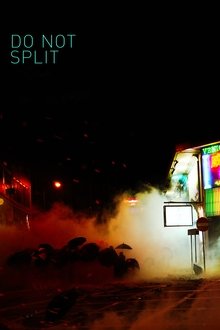
Do Not Split (2020)
The story of the 2019 Hong Kong protests, told through a series of demonstrations by local protestors that escalate into conflict when highly armed police appear on the scene.
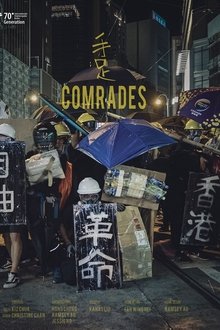
Comrades (2020)
Young people are protesting on the streets of Hong Kong in order to bring about change. Air soaked with tear gas, the dark uniforms and loud commands of the police officers in the colourful umbrella sea of the protesters. In the midst of the action, the film documents a brand new protest movement.

We Have Boots (2020)
The Umbrella Movement of 2014, also known as the Occupy Movement, paved the way for Hong Kong’s current upheavals, but unfolded in significantly different ways. This creative documentary focuses on the intellectual, political, and discursive underpinnings of the social and political actions of 2014, before fast-forwarding to 2019. A range of thoughtful and engaged intellectuals, students, scholars, activists, and artists including Benny Tai, Chan Kin-man, Ray Wong, and Agnes Chow (many of whom are facing imprisonment for their democratic activism) articulate a range of philosophies, viewpoints and emotions, set against Hong Kong’s spectacular urban background of skyscrapers, night lights, and street-occupying mass movements.

Fishball Revolution (NaN)
An asylum seeker from Hong Kong builds a new life for himself in Glasgow, using his passion for street food to maintain his cultural identity.
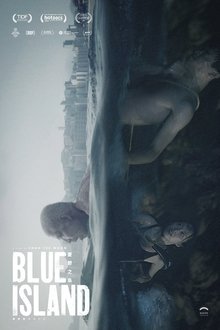
Blue Island (2022)
Although the Chinese government promised that Hong Kong would retain separate status until 2047, in recent years the Chinese state has consolidated its power over the metropolis. Large-scale protests by the populace have been brutally suppressed. This mix of documentary, fiction, and visions of the future reveals the current state of desolate depression among the people of Hong Kong. “A desperate attempt to capture the final moments of a sinking island”, as maker Chan Tze-woon himself puts it.
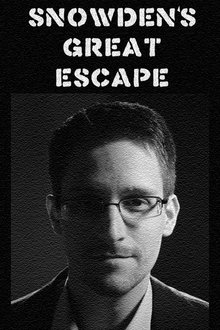
Snowden's Great Escape (2015)
Tells the story of how Edward Snowden managed to evade capture by the US. For the first time Snowden tells the story of how he managed to escape so that not to have to spend the rest of his life in an American prison.

TAEYEON's Frozen Journey (2024)
Rising beyond K-pop to become Asia's ultimate diva, TAEYEON explores the World of Frozen at Hong Kong Disneyland. Step into the enchanting world and engage in the stories with TAEYEON, who has drawn endless inspiration from Disney since childhood and now captivates audiences as a dream-weaving singer. From lovable characters to scenic winter landscapes, every aspect feels like a fairy tale come to life. Get immersed in the captivating World of Frozen and hear TAEYEON's behind-the-scenes tales of this beloved story.
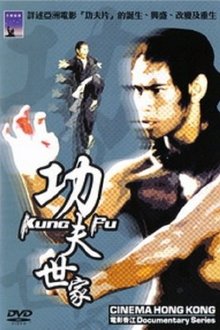
Cinema Hong Kong: Kung Fu (2003)
Filmmaker Ian Taylor examines the impressive legacy of Hong Kong cinema -- specifically, how martial arts crossed borders and become an international phenomenon -- with the help of footage and interviews with the stars who made the genre what it is today. Director Lau Ka Leung (who helmed The 36th Chamber of Shaolin) joins in, sharing his thoughts on how certain cinematic technologies have improved martial arts films and expanded their appeal, on the set of Drunken Monkey (2003).
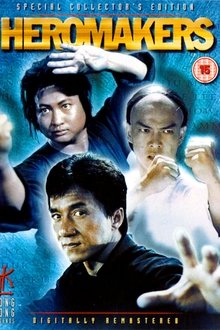
Heromakers (2003)
Experience an action-packed, stunt-filled journey behind the scenes of the World-famous 'Hong Kong Action Cinema industry'. Join Jackie Chan, Sammo Hung and the leading members of the 'Hong Kong Stuntman Association' as they reveal the secrets of their trade, and disclose fascinating anecdotes relating to their groundbreaking work in some of the most daring and innovative action movies ever made.
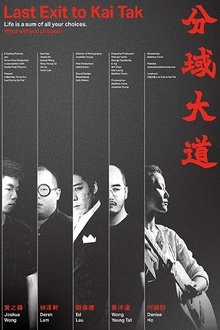
Last Exit to Kai Tak (2018)
In the aftermath of 2014's Umbrella Revolution, five Hong Kong activists are confronted with the question of what it means to be Hong Kongers.
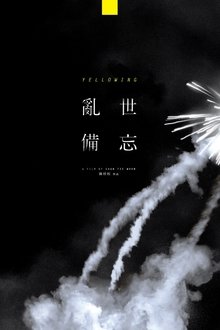
Yellowing (2016)
The turmoil that has overtaken Hong Kong since its return to Chinese sovereignty in 1997 has spawned a new generation of young, passionately committed activist filmmakers; they want to tell Hong Kong's story with Hong Kong voices. And the best indie documentary to have emerged so far from the HKSAR is this year's Yellowing, by Chan Tze Woon, a 29-year-old with degrees in policy studies and film production. Hong Kong's fraught, tense relationship with its mainland Chinese overseers came to a head with the Umbrella Movement of 2014. A crowd of protesters stormed Civic Square on September 27. The next day police shocked most residents of the HKSAR by attacking the growing crowds with volleys of tear gas, whereupon a wide cross section of Hong Kongers occupied the streets in several areas and stayed for almost 6 weeks. Chan took his camera on the streets for 67 days during these events.
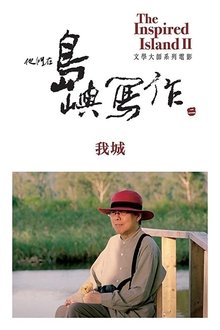
The Inspired Island: My City (2015)
Poet and author Xi Xi is one of Hong Kong's most treasured writers. Though also acclaimed in Taiwan and mainland China for seminal works like the essay Shops, her writings are firmly rooted in the spirit of Hong Kong. Leave it to Fruit Chan, another staunchly grassroots auteur, to make a documentary on Xi Xi's career. Chan sought out renowned critics and writers to discuss Xi Xi's works, starting with 1979's My City. He also juxtaposes photos of a changing Hong Kong with readings of her writings, and even playfully inserts characters from her stories into the film.
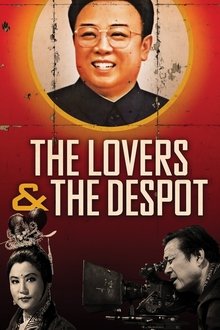
The Lovers and the Despot (2016)
Hong Kong, 1978. South Korean actress Choi Eun-hee is kidnapped by North Korean operatives following orders from dictator Kim Jong-il.
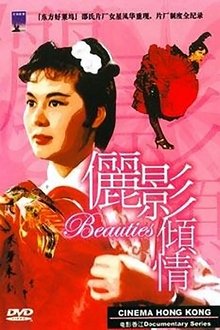
Cinema Hong Kong: The Beauties of the Shaw Studio (2003)
Hong Kong cinemas had a wide range of glamorous female stars during the golden age of the 60's and 70's. The series will take the audience on a sentimental journey to the good old days and once again look at the expansive epic costume dramas and huangmei operas in which actresses played both the male and female roles. Rare interviews with Sir Run Run Shaw, stars Ivy Ling Po, Shaw Yin Yin, Tanny Tie Ni and Cheng Pei Pei are also featured.